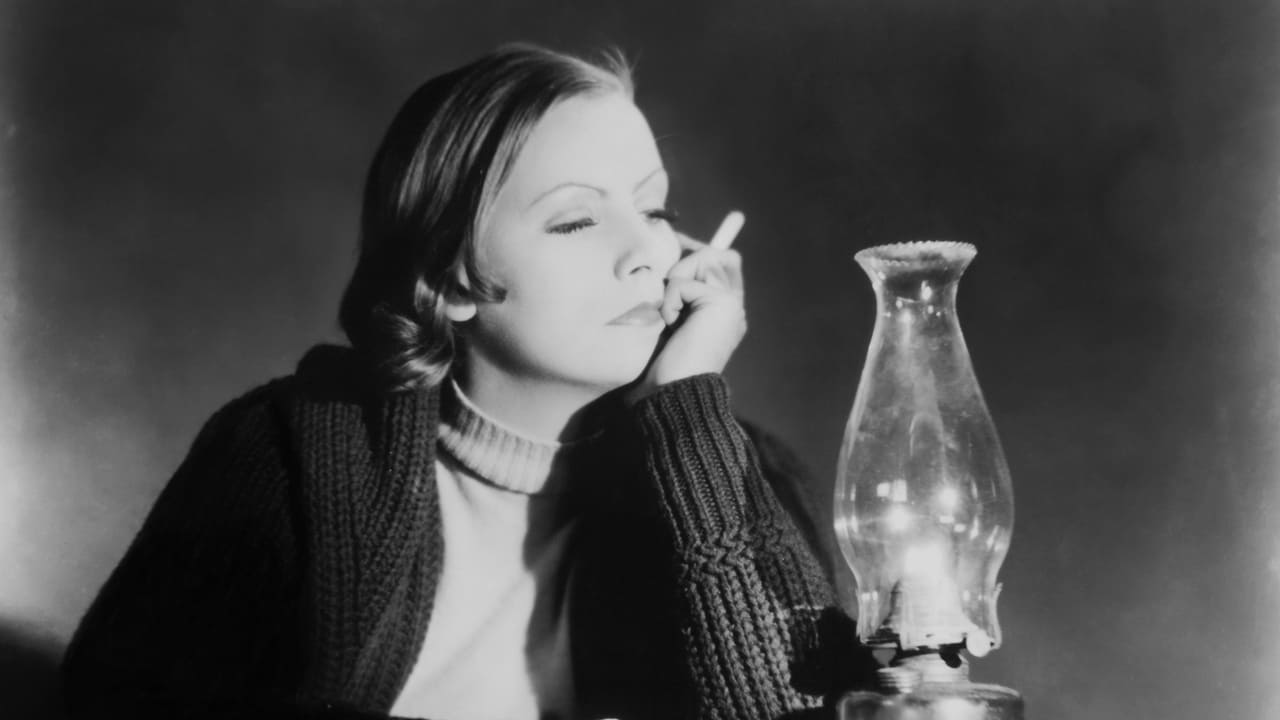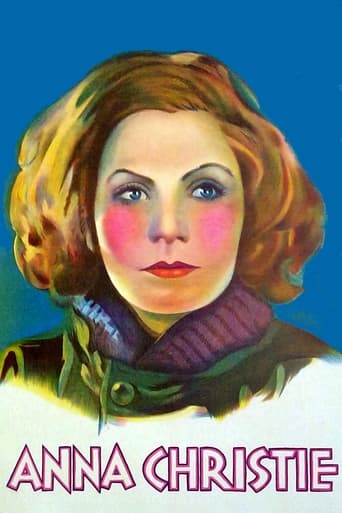Aubrey Hackett
While it is a pity that the story wasn't told with more visual finesse, this is trivial compared to our real-world problems. It takes a good movie to put that into perspective.
Calum Hutton
It's a good bad... and worth a popcorn matinée. While it's easy to lament what could have been...
Madilyn
Not sure how, but this is easily one of the best movies all summer. Multiple levels of funny, never takes itself seriously, super colorful, and creative.
GManfred
"Anna Christie" stars the great Greta Garbo in search of people - familiar faces or not-so familiar, doesn't matter. She comes to New York to find her father, and maybe a husband. This is the movie billed at the time as the one in which "Garbo Talks!". Well, she does, and turns out her voice was a pleasant one, although with a heavy accent. No problem, though, she plays a Scandinavian and so does her dad (George F. Marion).But prospects for a husband were not likely, as she was 'action' back in St. Paul - a fallen woman, to borrow a phrase. Enter Charles Bickford, who was shipwrecked and collapses on the deck of her father's barge. You would have to see the picture, but Bickford is afflicted here with a severe case of overacting. Apparently it was contagious, as the final scene in the film contains some of filmdom's worst scenery-chewing.Before I forget, I want to mention Marie Dressler, who is the main reason I rated "Anna Christie" a 7. She has actually a secondary part but she is terrific as a drunken 'wharf rat' and steals the scenes she is in. She raises an ordinary picture to a 'must see' and gives this dreary Eugene O'Neill drama a much-needed shot in the arm.
Alex da Silva
Anna Christie (Greta Garbo) returns to see her father Chris (George F Marion) after 15 years. He is the skipper of a boat and she stays to travel with him. During this time, she meets Matt (Charles Bickford) and they fall in love. Matt and Chris don't see eye to eye and Anna has a secret to confess.....................What a boring story......it starts badly with George F Marion and Marie Dressler playing drunks in a bar. The scene goes on forever and they are both terrible. Its also hard to understand them. In fact, its difficult to understand the whole cast. I missed whole sections of dialogue between Bickford, Marion and Garbo because it is incomprehensible! Garbo is obviously something special as you are drawn to her every time that she is on screen and her presence gives this film the 4 stars that I have given to it. But nothing really happens - its a boring story with atrocious accents. You'll do well to stay awake.
dglink
Based on a Eugene O'Neill play, "Anna Christie" was filmed at a time of transition in Hollywood from the silent era to sound. Because of the technical limitations imposed by the new sound process, the film is static visually and harsh aurally. Despite some atmospheric shots, director Clarence Brown rarely moved the camera and rarely framed his actors in anything but a medium shot. Contemporary viewers unaccustomed to films of the late 20s and early 30s will likely fidget at the monotonous visuals and scratchy soundtrack."Anna Christie" was also a transitional film for Greta Garbo. In her first sound feature, Garbo at times reverts to the mannerisms of the silent era. However, her voice meshed perfectly with her established image, and her performance was effective, if not among her best. The film's scene stealer was Marie Dressler, who walked off with the movie whenever she was on screen. While not a subtle performance, Dressler created a colorful character with substantial depth in her few scenes. Charles Bickford and George Marion provided able support to what was certainly a major production effort by MGM to transition one of their most valuable stars from the silents to the talkies.For the period, the film presents a a strong female character at its core. Anna resists the efforts of both her father and her boyfriend to control her life. When she reveals to both men what she had been required to do in the past in order to survive, she is prepared for whatever reaction she may get. Although Garbo makes it apparent what she wants the men to say, her character is strong enough to get on with her life with or without men involved. Anna Christie certainly matches some of the other strong characters in the Garbo gallery such as Queen Christina, who may want the love of a man and may be willing to sacrifice for it, but are strong and independent enough to survive without it and not suffer the fate of the Marie Dressler character. While "Anna Christie" creaks today and at times requires an effort to watch, the film is a valuable historical work. Certainly anything with Garbo is worth watching, and when "Garbo talks" the audience still listens, despite the clumsy technical production.
Matthew Dickson
A decent film, but one with flaws. Using the same formula that worked for Disreali, the filmmakers adapted a successful play, and then hired stage actors to fill the cast. Their one mistake was deciding on silent screen star Greta Garbo to play the former prostitute trying to make good in the title role. Garbo sucks what life there is out of the film with her thick Swedish accent and silent screen style overacting. The rest of the cast does a great deal to keep the film afloat. Marie Dressler, as a boozy old tramp, steals every scene she's in. Charles Bickford supplies a dose of masculinity as the lusty, brawling sailor in love with Christie, and George F. Marion rounds out the cast as the father who wasn't there. Director Clarence Brown handles the film well enough. He avoids keeping the camera static all the time, one of the pitfalls of early talkies, and makes every shot interesting despite the scenery not changing much. The story is good, but the script is somewhat watered down for the screen. If you didn't know beforehand that Christie was supposed to have been a prostitute, you might never pick it up from the subtle allusions. Nonetheless, it is a well made adaptation. Could have been much better if they had cast a halfway decent actress in the lead role.

